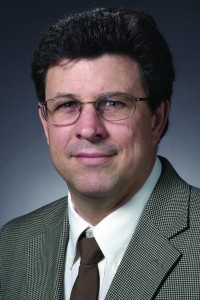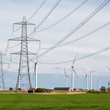
Iowa State University hosted a three-day workshop on Policy and Social Perspectives of Energy, Transportation and Water Infrastructures, July 17-19 at the Memorial Union. The workshop, sponsored by the National Science Foundation (NSF) and a number of Iowa State organizations, was held to stimulate collaborative research between policy experts, social scientists, and engineers regarding sustainable and resilient energy, transportation, and water infrastructure development.
The workshop was organized by students in the ISU Wind Energy Science, Engineering and Policy (WESEP) Ph.D. program with faculty advisors James McCalley, Harpole Professor in the Department of Electrical and Computer Engineering, Dave Peterson, Professor of Political Science, Lulu Rodriguez, Professor in the Greenlee School of Journalism and Communication, and Clark Wolf, Director of the Iowa State Bioethics program and professor of philosophy.
“Energy, transportation services, and water comprise foundational components to modern society.” McCalley says. “They are the fuel for our economy. Decisions on how to invest in our infrastructures influence lives for many decades, not only through the services these infrastructures provide, but also through the impacts they have or do not have on the environment.”
Attendees from all over the country joined in Ames to discuss infrastructure development from different perspectives. The workshop included policy experts, social scientists and engineers, and was opened by a series of eight lectures that summarized the work of eight NSF-funded research projects on resilient and sustainable infrastructures.
Decisions about where and how to invest in our infrastructure must be guided by informed debate, and McCalley believes workshops like the one held last week are vital to future decisions regarding infrastructure.
“This workshop was designed to combine infrastructure development and its engineering needs with public policy and social angles of infrastructure development,” he says. “Infrastructure investments usually have very good long-term benefits, but some have greater benefits than others. Careful examination of investment choices and their effects, including infrastructure inter-dependencies and raised public awareness of their importance, are critical steps we can begin today and continue into the future toward sustainable and resilient infrastructure systems.”
